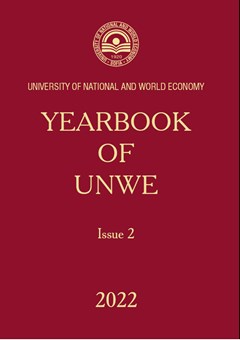The Economic Impact and Significance of Implementing New Technologies in the Power Storage Segment
Authors: Vladimir Zinoviev, Nikolai Nikolov
Abstract
In the present article will be considered the economic aspects in the implementation of new technologies in energy storage and energy transportation. After reduction of the carbon footprint in power generation process, it’s also very important that the flexible transfer and storage of the produced energy that is not immediately consumed. For the last 15 years the industrial storage of electricity is technically realistic, but it’s still a matter of discussion how economically justified it is. Some economic risks can be identified and some security measures can be taken. There is possible optimization of energy storage that can make it adjustable to the demand and energy market prices. There are some implications to the Industry 4.0 and increase of e-mobility generated energy consumption.
JEL: O33

